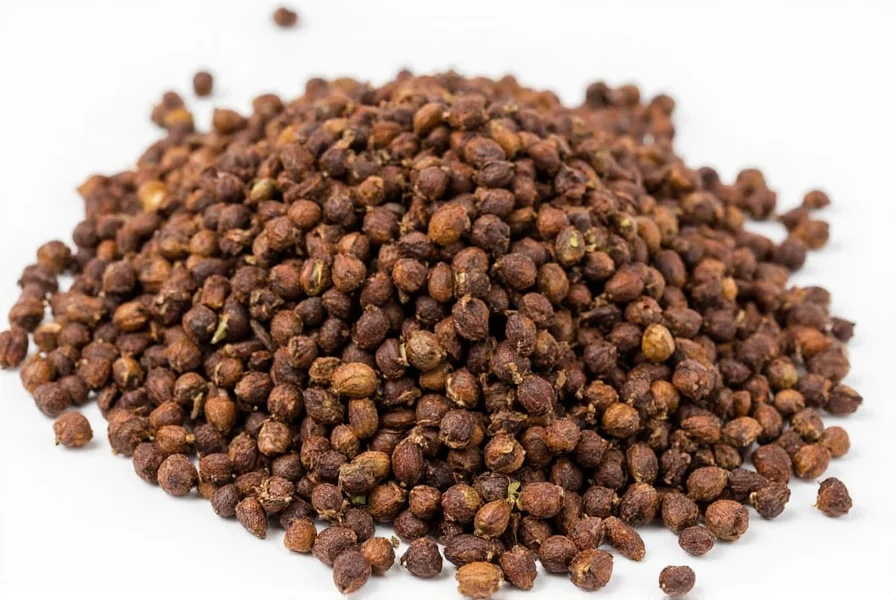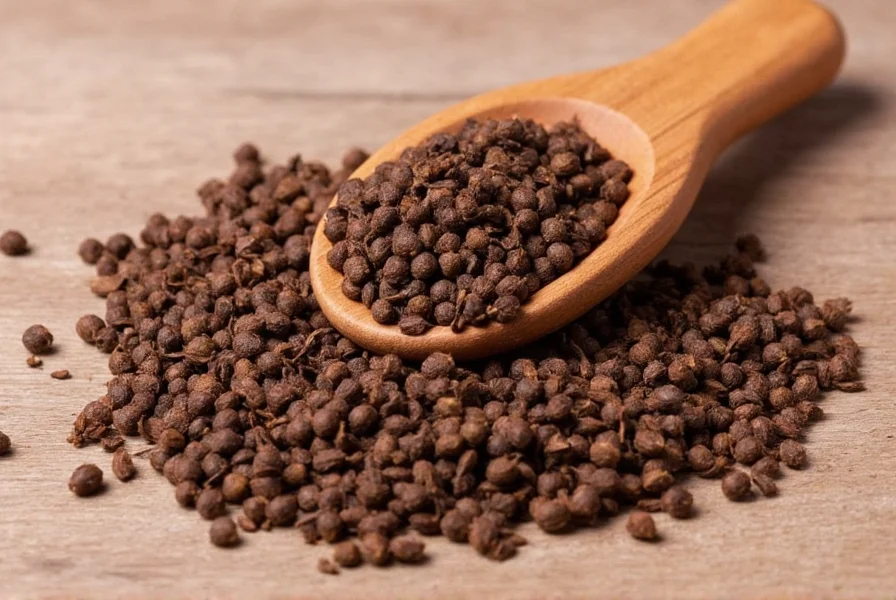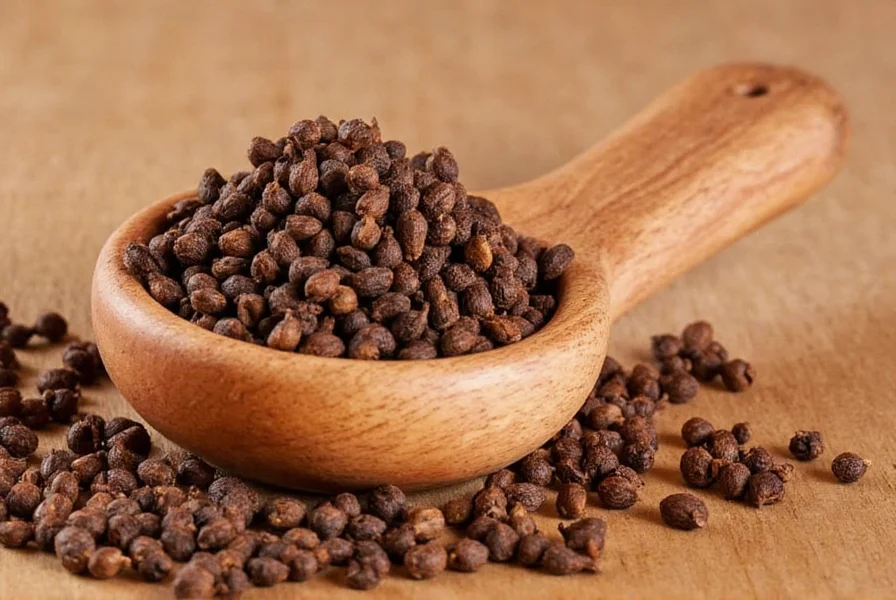Understanding the properties of ground cloves helps maximize their culinary and health benefits. These tiny spice particles contain eugenol, a bioactive compound responsible for cloves' distinctive warm, pungent flavor and numerous therapeutic properties. When properly stored and used, ground cloves enhance both sweet and savory dishes while providing measurable nutritional value.
What Exactly Are Ground Cloves?
Ground cloves originate from the unopened flower buds of the clove tree, harvested and sun-dried before grinding. The grinding process breaks down the fibrous structure of whole cloves, releasing volatile oils that create a more immediate flavor impact. This transformation affects several key characteristics:
| Characteristic | Whole Cloves | Ground Cloves |
|---|---|---|
| Shelf Life | 2-3 years | 6-12 months |
| Flavor Release | Gradual during cooking | Immediate upon use |
| Culinary Applications | Infusions, stews, pickling | Baking, rubs, spice blends |
| Measurement Precision | Less precise | Highly precise |
Nutritional Benefits and Scientific Evidence
Ground cloves pack a powerful nutritional punch in small quantities. Just one teaspoon (2 grams) contains significant amounts of manganese, vitamin K, and dietary fiber. More importantly, research published in the Journal of Agricultural and Food Chemistry confirms that ground cloves rank among the highest antioxidant spices, with an ORAC value exceeding 290,000 μmol TE per 100 grams.
The concentrated eugenol content in ground cloves demonstrates several scientifically supported benefits:
- Dental health - Natural antibacterial properties combat oral pathogens
- Anti-inflammatory effects - Reduces inflammatory markers in clinical studies
- Blood sugar regulation - Shows promise in managing glucose metabolism
- Digestive support - Stimulates enzyme production for better nutrient absorption

Culinary Applications for Ground Cloves
Chefs and home cooks value ground cloves for their versatility across multiple cuisines. Unlike whole cloves that require removal after cooking, ground cloves integrate seamlessly into dishes. Consider these professional applications:
For baking applications, ground cloves work exceptionally well in gingerbread, pumpkin pies, and spice cakes where even distribution matters. The fine particles dissolve completely in batters, eliminating the unpleasant surprise of biting into a whole clove. When using ground cloves in baking, remember that 1/4 teaspoon equals approximately one whole clove.
In savory cooking, ground cloves enhance curry powders, barbecue rubs, and braising liquids. Middle Eastern cuisine frequently incorporates ground cloves into lamb dishes, while Chinese five-spice powder relies on its warm notes. For meat marinades, combine ground cloves with acidic ingredients like citrus juice to help extract maximum flavor compounds.
Proper Storage Techniques for Maximum Freshness
Preserving ground cloves' potency requires careful storage due to their increased surface area. Exposure to light, air, and moisture rapidly degrades volatile oils. Follow these evidence-based storage methods:
- Transfer ground cloves to an airtight glass container immediately after purchase
- Store in a cool, dark cupboard away from heat sources like stoves
- Maintain consistent temperature (fluctuations accelerate degradation)
- Never store above 70°F (21°C) for extended periods
- Consider freezing for long-term storage (up to 18 months)
A 2022 study in the International Journal of Food Science demonstrated that ground cloves stored in amber glass containers retained 87% of their eugenol content after 12 months, compared to just 43% in clear plastic containers. For optimal flavor, purchase small quantities and replenish every 6-8 months.
Identifying Fresh vs. Stale Ground Cloves
Determining ground cloves' freshness requires sensory evaluation. Fresh ground cloves should exhibit these characteristics:
- Aroma - Strong, penetrating scent detectable from 12 inches away
- Color - Rich reddish-brown (faded to light brown indicates age)
- Taste - Immediate warmth followed by slight numbing sensation
- Texture - Fine, uniform powder without clumping
Perform the palate test by placing a small amount on your tongue. Fresh ground cloves create a distinct warming sensation within 5 seconds, while stale product tastes flat and dusty. If your ground cloves fail these tests, they've likely lost 60-80% of their volatile compounds and should be replaced.

Ground Cloves Substitutes and Measurement Conversions
When ground cloves aren't available, these substitutions maintain recipe integrity:
- Allspice - Use 3/4 teaspoon allspice for every 1 teaspoon ground cloves
- Cinnamon-nutmeg blend - Combine equal parts cinnamon and nutmeg (1:1 ratio)
- Pumpkin pie spice - Substitute 1.5 teaspoons for each teaspoon of ground cloves
- Whole cloves - Grind fresh using a dedicated spice grinder (1 clove = 1/4 tsp ground)
Remember that clove's distinctive flavor profile doesn't have perfect substitutes. When replacing in baking, reduce the substitute amount by 25% initially, then adjust to taste. For medicinal applications, substitutions aren't recommended due to differing compound concentrations.
Safety Considerations and Usage Guidelines
While ground cloves offer numerous benefits, proper usage prevents potential issues. The concentrated eugenol content requires careful handling:
- Limited to 1-2 teaspoons daily for culinary use
- Avoid undiluted application to skin or gums
- Consult physicians before medicinal use if taking blood thinners
- Not recommended for children under 2 years old
- Pregnant women should limit consumption to culinary amounts
Excessive consumption may cause mouth irritation, digestive upset, or interact with certain medications. A case study in Clinical Toxicology documented adverse effects from consuming more than 15mL of clove oil, though culinary use of ground cloves presents minimal risk when used appropriately.
Frequently Asked Questions
Can ground cloves go bad and make you sick?
Ground cloves don't typically cause illness when expired, but they lose potency and develop off-flavors. Discard if they smell musty, show mold, or have significant clumping from moisture exposure. Properly stored ground cloves remain safe but less flavorful after 12 months.
How much ground cloves equals one whole clove?
One whole clove equals approximately 1/4 teaspoon of ground cloves. This conversion works for most recipes, though baking applications may require slight adjustments due to differences in flavor release between whole and ground forms.
Are ground cloves as healthy as whole cloves?
Ground cloves contain the same beneficial compounds as whole cloves but lose potency faster due to increased surface area. Freshly ground cloves from whole buds offer maximum nutritional value, while pre-ground products gradually degrade. For optimal health benefits, grind whole cloves as needed.
What's the best way to grind cloves at home?
Use a dedicated coffee grinder or mortar and pestle for best results. Freeze whole cloves for 15 minutes before grinding to prevent oil separation. Grind in small batches (1-2 tablespoons) for consistent texture, and clean your grinder immediately to prevent flavor transfer to future batches.











 浙公网安备
33010002000092号
浙公网安备
33010002000092号 浙B2-20120091-4
浙B2-20120091-4